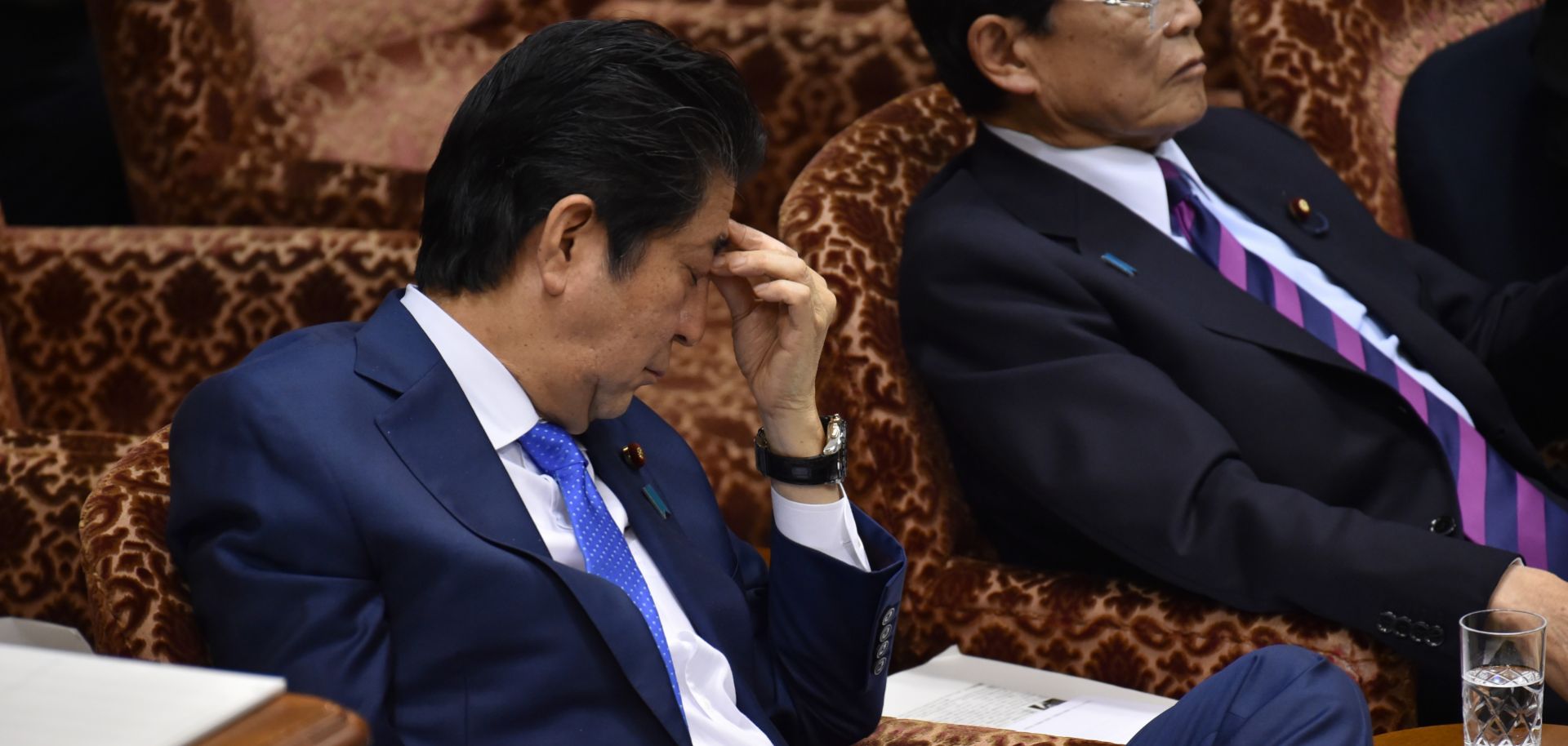ASSESSMENTS
Can Japan's Prime Minister Win a Third Term?
Jun 14, 2018 | 09:00 GMT

Japanese Prime Minister Shinzo Abe sits in the Japanese parliament, the Diet, during March 2017. Since 1989, the average length of a prime minister's tenure has been under two years, and Abe's six-years-and-counting in power have broken the trend.
(KAZUHIRO NOGI/AFP/Getty Images)
Highlights
- Japanese Prime Minister Shinzo Abe is up for a third term as the ruling Liberal Democratic Party (LDP) president this September.
- If Abe is voted out, Japanese politics could enter a period of frequent leadership changes and instability, jeopardizing the LDP's economic reform and military normalization agendas.
- It would also cause diplomatic challenges at a time when rivalry among global great powers is heating up and neighboring Asia-Pacific leaders are gaining power.
- The LDP, which determines the outcome of the election through an internal party leadership vote, will need to calculate whether it's more of a liability for Abe to remain in power or for his departure to open up space for political weakness and uncertainty.
Subscribe Now
SubscribeAlready have an account?
